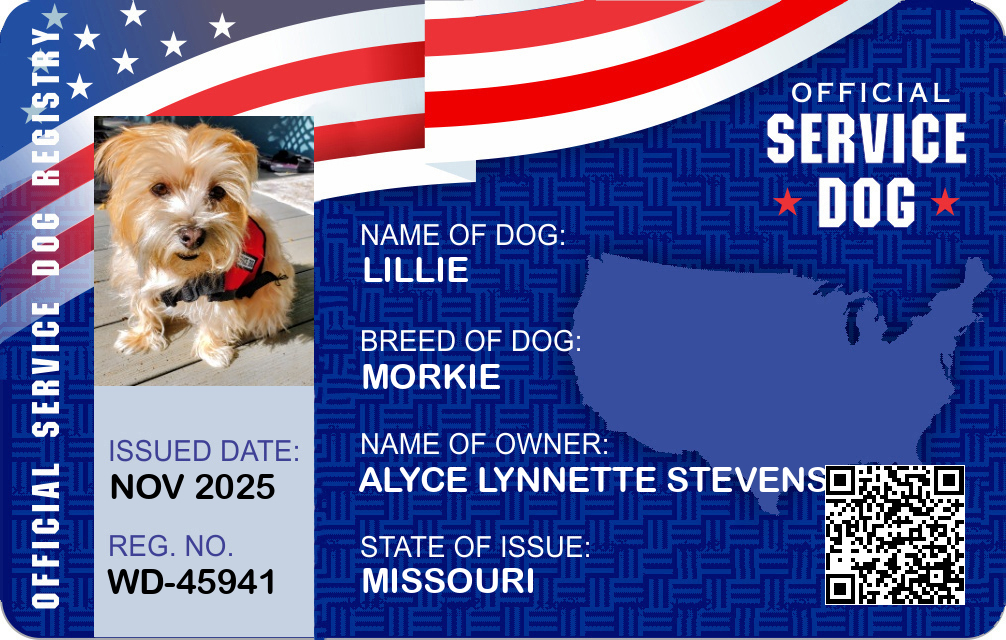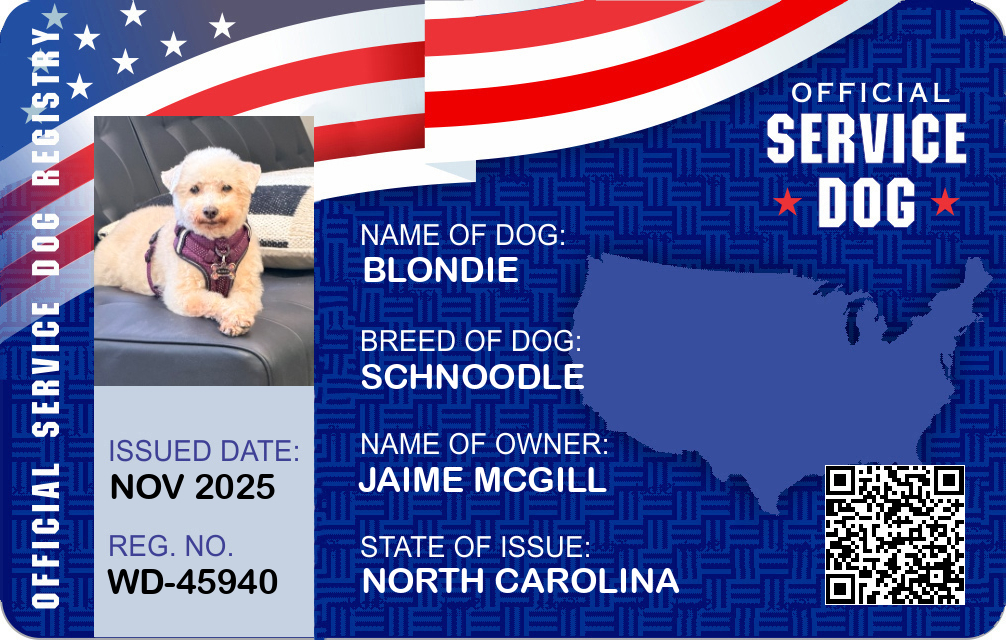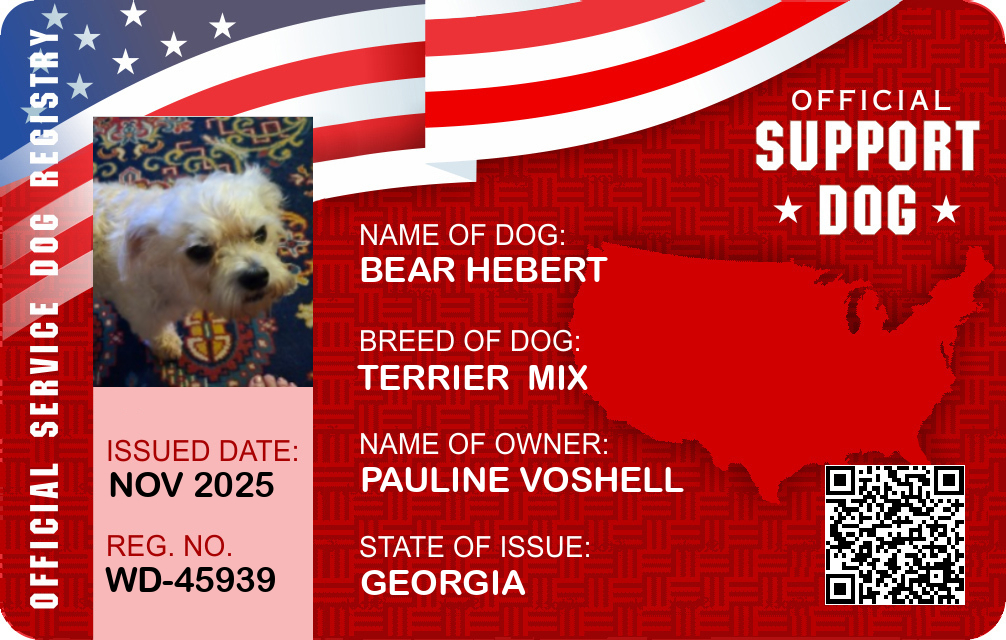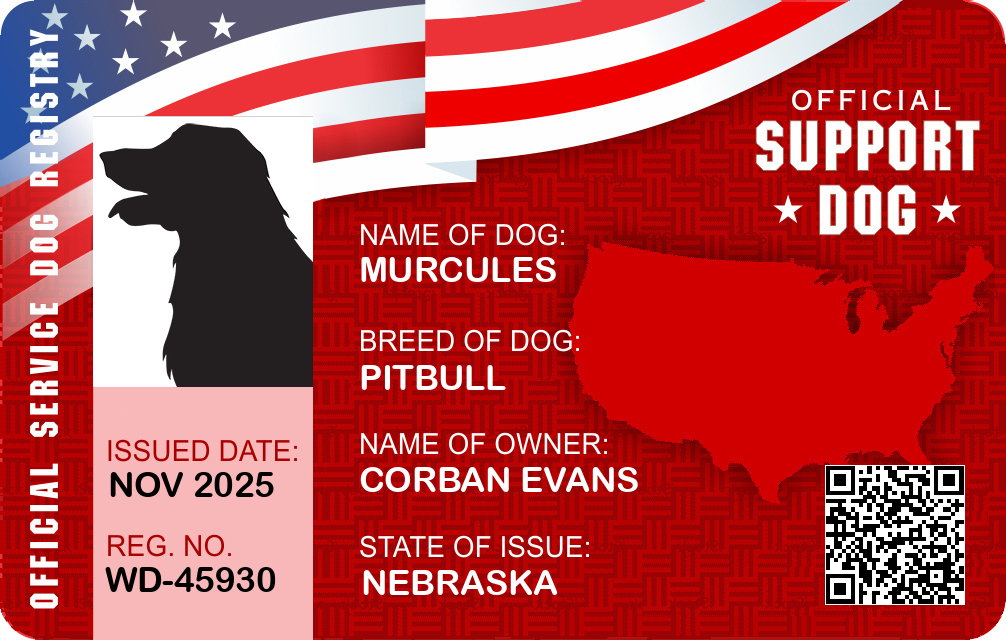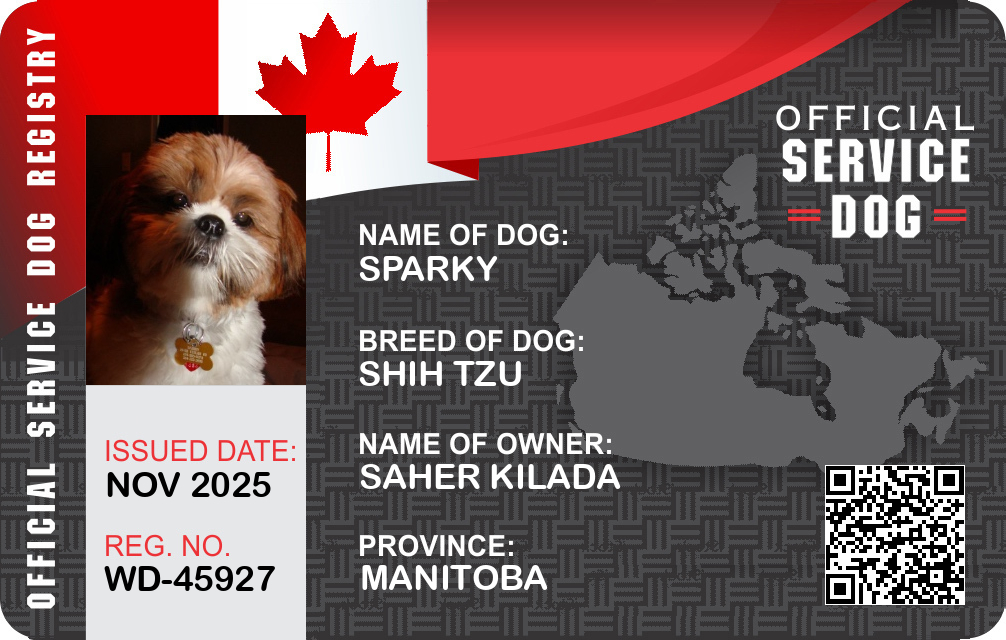Maryland Service Dog Laws
Register Your Dog
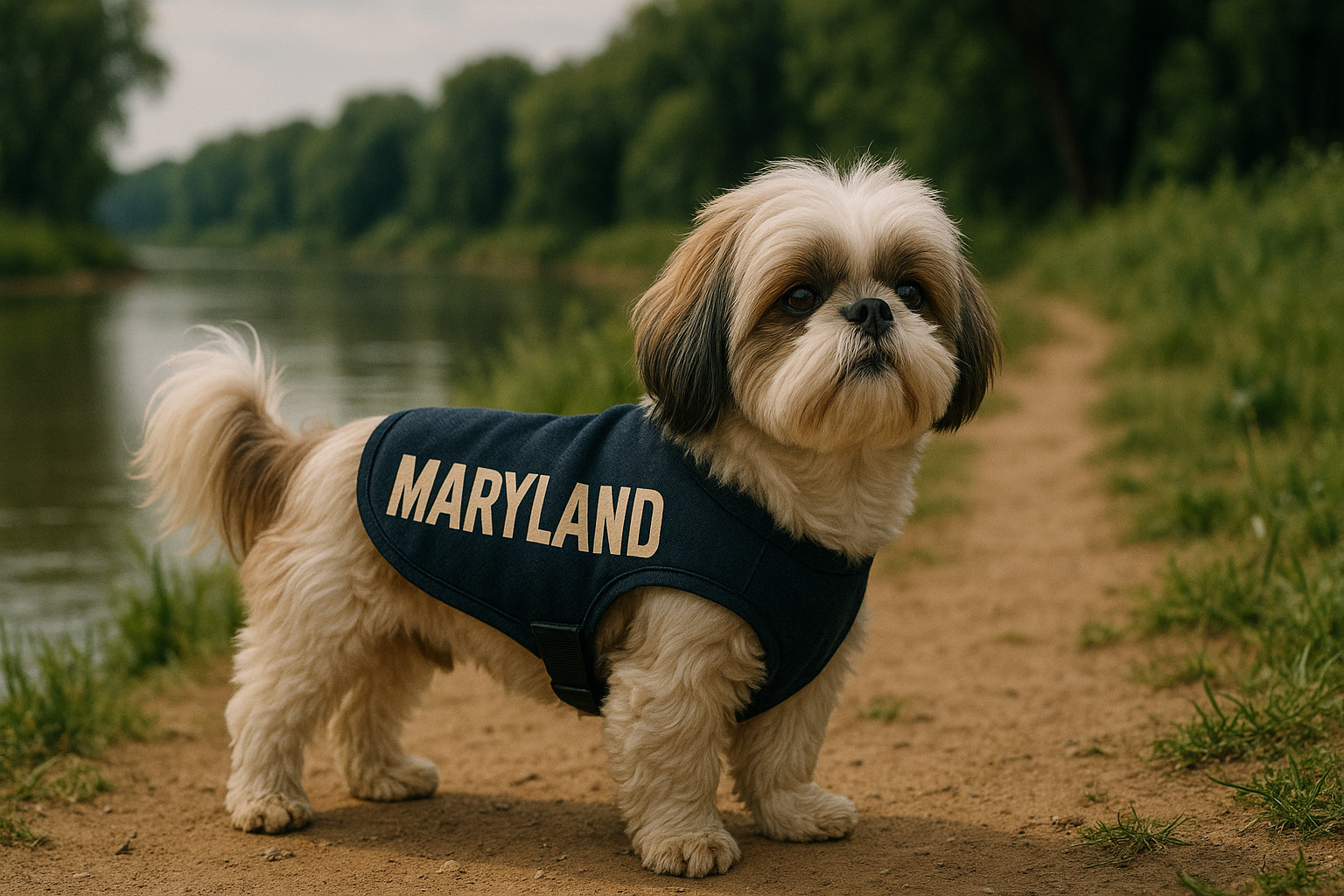
Overview of Service Dog and Legal Definitions in Maryland
Service dogs play an essential role in supporting individuals with disabilities, enabling them to live more independently and engage fully in their communities. Understanding the legal landscape for service dogs in Maryland is crucial for handlers, businesses, and the general public.
What is a Service Dog?
A service dog is specifically trained to perform tasks for an individual with a disability, helping mitigate their disability. These tasks can include guiding individuals who are visually impaired, alerting those who are deaf, pulling wheelchairs, retrieving items, alerting the onset of seizures, and more. According to the Americans with Disabilities Act (ADA), a service dog is not considered a pet but a working animal.
How Service Dogs Differ from Other Types of Assistance Animals
While service dogs are trained to perform specific tasks for people with disabilities, assistance animals can include emotional support animals (ESAs) or therapy animals. These animals have not been trained to perform specific tasks related to a person’s disability and are not afforded the same legal rights and access as service dogs in public accommodations under the ADA.
Key Federal Laws Affecting Service Dogs
Several federal laws set the landscape for service dog rights and responsibilities.
- Americans with Disabilities Act (ADA): This is the primary federal mandate that ensures service dogs are allowed to accompany their handlers in public places, such as restaurants, hotels, and stores. Under ADA, businesses may only ask if a dog is a service animal required because of a disability and what task the dog has been trained to perform.
- Fair Housing Act (FHA): The FHA prohibits discrimination in housing, granting individuals with disabilities the right to reasonable accommodations. This includes the right to keep a service animal, even in housing that otherwise limits pets.
- Air Carrier Access Act (ACAA): This law governs service dog access on airplanes, allowing dogs to accompany their handlers in the cabin free of charge. Airlines may require documentation for service dogs, particularly for flights over eight hours.
State-Specific Service Dog Laws in Maryland
Housing Rights and Responsibilities
Maryland adheres to the federal Fair Housing Act, ensuring individuals with service dogs are accommodated in residential spaces, regardless of pet policies. Landlords must allow service dogs if the documentation and necessity can be demonstrated, and cannot charge pet fees or deposits.
Public Access and Accommodation
Service dogs in Maryland are permitted to accompany their handlers in public accommodations. This guideline is aligned with the ADA, ensuring equal access to services and businesses. Maryland regulations emphasize non-discrimination and require service dog handlers to have the same access as any other patron.
Transportation and Travel Rules
Public transportation systems in Maryland, including buses, trains, and subways, must allow service dogs to accompany their handlers without an additional fee. Maryland follows the ACAA for air travel, enforcing the right of access for service dogs, with certain procedures available if airlines request documentation to substantiate the requirement on longer flights.
Employment and Workplace Considerations
Under the ADA, employers in Maryland must provide reasonable accommodation for employees who use service dogs unless doing so would pose an undue hardship. This means allowing service dogs in the workplace and ensuring the employee’s ability to perform job duties more effectively with the aid of their service dog.
Documentation, Requirements, and Process
es in MarylandService Dog Documentation and Who Can Issue It
While the ADA does not require service dogs to have certification, documentation from a medical professional outlining the necessity of a service dog can be pivotal in various scenarios, such as housing or air travel. Maryland does not have a state-specific certification but acknowledges such documentation if provided by a licensed healthcare provider.
Landlord, Business, and Provider Verification Rules
In Maryland, landlords, business owners, and service providers may only ask limited questions regarding the service dog’s status under ADA rules. They cannot demand documentation or proof of the dog’s training but can request a demonstration of the dog’s tasks if not immediately apparent. Crucially, they cannot request information about the handler’s disability.
Rights, Limitations, and Legal Risks
Rights Service Dog Handlers Have in Maryland
In Maryland, handlers are entitled to:
- Access public spaces with their service dogs
- Live in housing facilities regardless of pet policies
- Travel on public transit and airlines
- Attain reasonable accommodations at the workplace
Limits on Service Dog Protections and Common Restrictions
Certain limitations exist, such as:
- Service animals must be under control, often through a leash or voice control
- Handlers must ensure the service dog does not cause disruptions
- Access can be denied if a service dog poses a direct threat or is not housebroken
Penalties for Fraud or Misrepresentation
Misrepresenting a pet as a service dog is both unethical and illegal. Maryland enforces penalties for this, reflecting growing legal measures against service dog fraud. Fines and corrective actions are implemented to uphold the integrity of service animal regulations.
Practical Guidance for Service Dog Handlers in Maryland
How to Qualify for a Service Dog Legitimately
Generally, individuals with disabilities who can benefit from a service dog’s specific tasks are qualified. Steps include consulting healthcare providers for documentation and connecting with accredited trainers or organizations for service dog acquisition.
How to Talk to Landlords, Airlines, and Employers
When discussing service dog needs with landlords, airlines, or employers, handlers should:
- Clearly state the service dog’s tasks
- Provide relevant medical documentation if required for housing or employment
- Understand and assert legal rights to reasonable accommodation
Summary of Service Dog Laws in Maryland
To navigate service dog regulations in Maryland effectively, keep the following key points in mind:
- Service dogs are legally distinct from pets and must perform specific tasks related to a handler’s disability.
- Federal laws like the ADA, FHA, and ACAA intersect with state laws, forming a comprehensive access and accommodation framework.
- Service dogs have extensive rights to public and private spaces, with exceptions for direct threats or disruptions.
- Misrepresenting a service dog is subject to legal penalties, reflecting the seriousness of compliance.
- Maintaining documentation and understanding interactions with landlords, employers, and travel providers can prevent disputes and ensure access.
Adhering to these guidelines will ensure compliance with both federal and Maryland-specific laws, facilitating the necessary support service dogs offer to individuals with disabilities.



